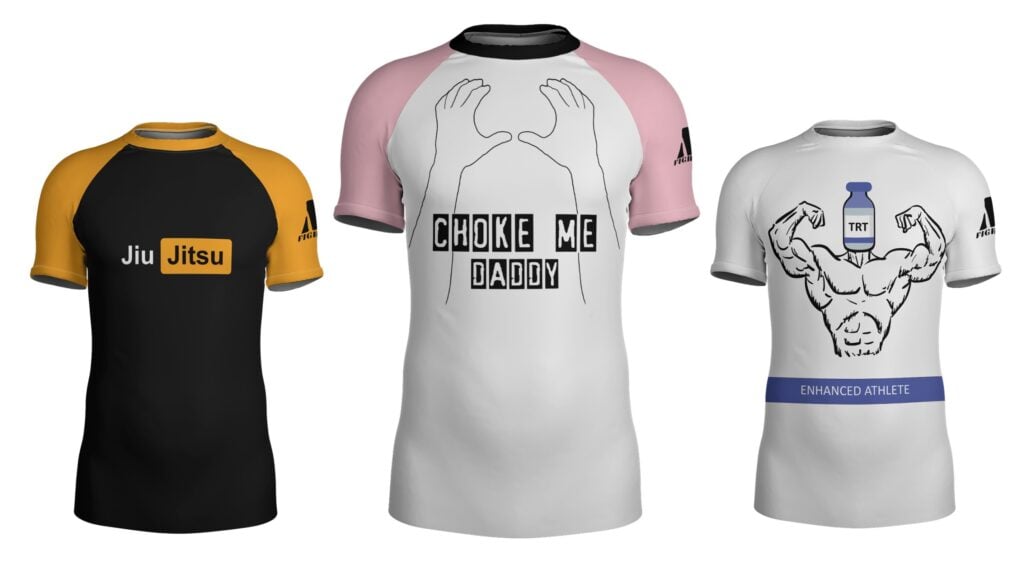
- In a recent podcast interview, z Matt Skaff touched a nerve in the jiu-jitsu world when he stated that IBJJF competition is mostly for hobbyists, not serious professionals.
- It didn’t take long before the reactions poured in—most notably from Robert Drysdale, one of ADCC’s most decorated American competitors and a longtime voice in the sport.
________________________________________________________________________
“It’s pretty cool for some of the older athletes,” Skaff said. “If you’re a master’s grappler—anybody over the age of 30—and you want to get some good competition, and you want to have some cool accolades, I think IBJJF’s a great avenue for you.”
________________________________________________________________________
Skaff added that younger, more ambitious competitors should look to events like ADCC and submission-only formats if they want real development or recognition. He also called out IBJJF’s membership and tournament fees, questioning why athletes have to pay premium costs to compete under what he implied was a limited and overly restrictive rule set.
“If you’re a young, hungry competitor, the IBJJF makes no sense,” added Skaff.
Robert Drysdale Responds: “Apparently Buchecha Wasted His Life, Then?”
Drysdale, never one to let bold claims slide, didn’t pull punches in his response. “Apparently Buchecha, Roger, Lepri, Malfacini, Mendes, etc., just wasted their lives then… if only they had listened to this advice,” he wrote, dripping with sarcasm.
Drysdale is a 2007 ADCC absolute champion and former IBJJF World Champion, giving him a rare perspective from both competitive worlds. His response carried more than just personal pride—it was a defence of the IBJJF’s historic role in shaping many of the sport’s all-time greats.
10th Planet vs. IBJJF: A Longstanding Style Clash
This isn’t the first time the 10th Planet system has clashed with traditional jiu-jitsu institutions. Founded by Eddie Bravo, 10th Planet jiu-jitsu was built on no-gi grappling, unorthodox positions like rubber guard, and an emphasis on submission over points.
It has always leaned into submission-only tournaments and open rule sets like EBI and ADCC, distancing itself from gi-based promotions like the IBJJF. Skaff, as a longtime affiliate of that lineage, isn’t alone in his views.
Many no-gi competitors believe that the IBJJF’s strict point-based rules and advantages system slows the game down and favor stalling. But there’s a flip side: without structure, critics argue, Jiu-Jitsu devolves into chaos or turns into entertainment-first exhibitionism.
The Cost Criticism Isn’t New
Skaff did tap into one sentiment that’s widely shared across the BJJ community: the cost of competing under IBJJF is steep. Annual membership, registration fees, and travel costs to reach the few qualifying tournaments make it inaccessible to many.
Skaff addressed these aspects, claiming the IBJJF makes “$2 million in just memberships before anyone signs up for an event.”He also pointed to the requirements for black belts to pay significant sums in order to be eligible to compete against one another.
Critics argue that the financial barrier disproportionately favors well-resourced athletes or teams, leaving talented grapplers out of elite competition simply due to cost.
This tension is central to jiu-jitsu’s identity crisis as it tries to walk the line between martial art, professional sport, and mainstream entertainment. And it’s part of the reason why smaller, open-format tournaments and grassroots submission-only events continue to grow.
Same Sport, Two Rulebooks
At its core, the Drysdale–Skaff debate reflects a broader philosophical split in Jiu-Jitsu: Should the sport reward positional control, or only submissions? Should it value consistency over creativity? Structure over style?
IBJJF, for all its flaws, has created decades of structure. ADCC, for all its flair, still leans on that pipeline of IBJJF-trained talent. One isn’t better or worse—they’re different games, with different risks and rewards. But when a black belt dismisses one side of that equation as purely “for hobbyists,” the blowback is inevitable.
Viral Grappler Post Claims IBJJF Biggest Impact Is Helping Brazilians Get Green Cards


![Darce Choke Encyclopedia – Origins, Mechanics and Variations [2025] BJJ, choke, Brabo, BJJ Darce Choke, D'arce Choke, Darce BJJ Choke](https://bjj-world.com/wp-content/uploads/2017/11/JungPoirierLeeYahoo-218x150.jpg)












![4 Weeks To A Better Guard Travis Stevens DVD Review [2025] 4 Weeks To A Better Guard Travis Stevens DVD Review](https://bjj-world.com/wp-content/uploads/2025/04/4-weeks-to-a-better-guard-travis-stevens-dvd-review-218x150.png)
![DONE! Gordon Ryan Retiring—and Danaher Might Not Be Far Behind! [2025] Gordon Ryan Retiring—and Danaher Might Not Be Far Behind!](https://bjj-world.com/wp-content/uploads/2025/04/LEG-GRABS-3-1-218x150.png)

![6 Most Essential Skills Base Top Dima Murovanni DVD Review [2025] 6 Most Essential Skills Base Top Dima Murovanni DVD Review](https://bjj-world.com/wp-content/uploads/2025/04/essential-skills-base-top-dima-murovanni-dvd-review-218x150.png)
![Cross Ashi Garami Firas Zahabi DVD Review [2025] Cross Ashi Garami Firas Zahabi DVD Review](https://bjj-world.com/wp-content/uploads/2025/04/cross-ashi-garami-firas-zahabi-dvd-review-218x150.png)



![Leg Locks From Beginner To Advanced Dan Manasoiu DVD Review [2024] Leg Locks From Beginner To Advanced Dan Manasoiu DVD Review](https://bjj-world.com/wp-content/uploads/2024/12/leg-locks-from-beginner-to-advanced-dan-manasoiu-dvd-review-100x70.png)
![Top Half Guard Neil Melanson DVD Review [2025] Top Half Guard Neil Melanson DVD Review](https://bjj-world.com/wp-content/uploads/2025/02/top-half-guard-neil-melanson-dvd-review-100x70.png)
![Two Sides One Game Sweep and Pass Marcos Tinoco DVD Review [2024] Two Sides One Game Sweep and Pass Marcos Tinoco DVD Review](https://bjj-world.com/wp-content/uploads/2024/11/sweep-and-pass-marcos-tinoco-dvd-review-100x70.png)
![Jiu-Jitsu For Old Guys Guard Retention Bernardo Faria DVD Review [2025] Jiu-Jitsu For Old Guys Guard Retention Bernardo Faria DVD Review](https://bjj-world.com/wp-content/uploads/2025/03/old-guys-guard-retention-bernardo-faria-dvd-review-100x70.png)
![Leg Lock Entries Helena Crevar DVD Review [2025] Leg Lock Entries Helena Crevar DVD Review](https://bjj-world.com/wp-content/uploads/2025/03/leg-lock-entries-helena-crevar-dvd-review-100x70.png)


![Simplify the System Side Scissor Brian Glick DVD Review [2024] Simplify the System Side Scissor Brian Glick DVD Review](https://bjj-world.com/wp-content/uploads/2024/09/side-scissor-brian-glick-dvd-review-2024-100x70.png)



![Master Scissor Sweep Ryan Scialoia DVD Review [2025] Master Scissor Sweep Ryan Scialoia DVD Review](https://bjj-world.com/wp-content/uploads/2024/12/scissor-sweep-ryan-scialoia-dvd-review-100x70.png)

![Back Control and Submission Felipe Pena DVD Reveiw [2025] Back Control and Submission Felipe Pena DVD Reveiw](https://bjj-world.com/wp-content/uploads/2025/01/back-control-and-submission-felipe-pena-dvd-reveiw-100x70.png)
![The Stack Pass Andre Galvao DVD Review [2025] The Stack Pass Andre Galvao DVD Review](https://bjj-world.com/wp-content/uploads/2025/01/the-stack-pass-andre-galvao-dvd-review-100x70.png)
![The Closed Guard Malachy Friedman BJJ DVD Review [2025] The Closed Guard Malachy Friedman BJJ DVD Review](https://bjj-world.com/wp-content/uploads/2025/01/closed-guard-malachy-friedman-bjj-dvd-review-100x70.png)
![Kill The Underhook Dima Murovanni DVD Review [2024] Kill The Underhook Dima Murovanni DVD Review](https://bjj-world.com/wp-content/uploads/2024/10/kill-the-underhook-dima-murovanni-dvd-review-100x70.png)


![Heavy Top Game Fabiano Scherner BJJ DVD Review [2025] Heavy Top Game Fabiano Scherner BJJ DVD Review](https://bjj-world.com/wp-content/uploads/2025/01/heavy-top-game-fabiano-scherner-bjj-dvd-review-100x70.png)


![Edging Yourself Out Of Danger Craig Jones DVD Review [2024] Edging Yourself Out Of Danger Craig Jones DVD Review](https://bjj-world.com/wp-content/uploads/2024/12/edging-yourself-out-of-danger-craig-jones-dvd-review-100x70.png)
![Ultimate Study Tomoe Nage Neil Adams BJJ DVD Review [2025] Ultimate Study Tomoe Nage Neil Adams BJJ DVD Review](https://bjj-world.com/wp-content/uploads/2025/04/tomoe-nage-neil-adams-bjj-dvd-review-100x70.png)


![Jeff Glover DVD Bundle Review: Chokin’ Around With Uncle Jeff [2024] Jeff Glover DVD Bundle Review: Chokin' Around With Uncle Jeff](https://bjj-world.com/wp-content/uploads/2024/10/jeff-glover-dvd-bundle-review-chokin-around-100x70.png)